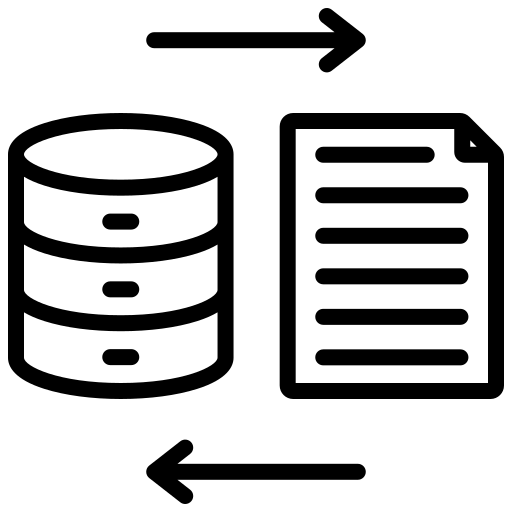Abstract
This article explains how to extract and save SQL Statements found in Execute SQL Tasks of an SSIS package that contains For Loop container using C# programming language.
Requirements
Article
This article continues from another article which can be found here.
Launch Visual Studio 2008 and create an Integration Services Project. After the default (new) package has launched, drag a script task to the control flow pane.
Right-click to edit the script task. In your Script Task Editor ensure that you have selected Microsoft Visual C# as your programming language.
At the bottom of your Script Task Editor, click “Edit Script”.
Add the following references:
using System;
using System.Data;
using System.Data.Sql;
using System.Data.SqlTypes;
using System.Data.SqlClient;
using Microsoft.SqlServer.Server;
using Microsoft.SqlServer.Dts.Tasks;
using Microsoft.SqlServer.Dts.Tasks.ExecuteSQLTask;
using Microsoft.SqlServer.Dts.Runtime;
using Microsoft.SqlServer.Dts.Pipeline.Wrapper;
using RuntimeWrapper = Microsoft.SqlServer.Dts.Runtime.Wrapper;
using System.IO;
Proceed to load the package (that contains the Execute SQL Tasks you would like to extract and save).
Application app = new Application();
Load package
Package p = app.LoadPackage(“C:\\TEMP\\pkg_Execute_Sql_Tasks.dtsx”, null);
Establish a connection to the SQL database where you will store the extracted SQL statements:
SqlConnection connectiont = new SqlConnection(
string.Format(“Data Source={0};Initial Catalog={1};Integrated Security=SSPI;”, “(local)”, “your_db”));
SqlCommand commandt;
connectiont.Open();
Declare variables that will be used to store extracted queries:
string src_query2 = “”;
string src_query3 = “”;
string src_query = “”;
string sql_task_name = “”;
The rest of the code is as follows:
foreach (Executable executable in importPackage.Executables)
{
//This part is for Execute SQL Tasks found within the For Loop Container
DtsContainer container = (DtsContainer)executable;
//NB: The executable type is case-sensitive. Hence, make sure you give the type of the executable below as “ForLoop” instead of “FORLOOP”
if (executable.GetType().Name == “ForLoop”)
{
ForLoop seq = (ForLoop)executable;
foreach (Executable ForLp_exec in seq.Executables)
{
DtsContainer ForLp_container = (DtsContainer)ForLp_exec;
if (ForLp_exec.GetType().Name == “TaskHost”)
{
TaskHost loop = (TaskHost)ForLp_exec;
ExecuteSQLTask sqlTask = (ExecuteSQLTask)loop.InnerObject;
src_query2 = sqlTask.SqlStatementSource;
src_query3 = src_query2.ToUpper();
src_query = src_query3;
sql_task_name = ForLp_container.Name;
//Split extracted queries on keyword Go
string source3 = src_query;
string[] stringSeparators3 = new string[] { “GO” };
string[] result3;
result3 = source3.Split(stringSeparators3, StringSplitOptions.None);
foreach (string s in result3)
{
//NB: You can replace table name SQL_Task with your own table
commandt = new SqlCommand(“INSERT INTO SQL_Task VALUES(@SRC_Q,@SQL_NAME), connectiont);
commandt.Parameters.Add(new SqlParameter(“@SRC_Q”, s));
commandt.Parameters.Add(new SqlParameter(“@SQL_NAME”, sql_task_name));
commandt.ExecuteNonQuery();
}
}
}
}
//This part is for Execute SQL Tasks found outside of the For Loop Container
if (executable.GetType().Name == “TaskHost”)
{
TaskHost loop = (TaskHost)executable;
ExecuteSQLTask sqlTask = (ExecuteSQLTask)loop.InnerObject;
src_query = sqlTask.SqlStatementSource;
sql_task_name = container.Name;
string source = src_query;
string[] stringSeparators = new string[] { “GO” };
string[] result;
result = source.Split(stringSeparators, StringSplitOptions.None);
foreach (string s in the result)
{
commandt = new SqlCommand(“INSERT INTO SQL_Task VALUES(@SRC_Q,@SQL_NAME)”, connectiont);
commandt.Parameters.Add(new SqlParameter(“@SRC_Q”, s));
commandt.Parameters.Add(new SqlParameter(“@SQL_NAME”, sql_task_name));
commandt.ExecuteNonQuery();
}
}
}
Dts.TaskResult = (int)ScriptResults.Success;
We then save the package in a file system.
SIFISO_app.SaveToXml(“C:\\TEMP\\pkg_Execute_Sql_Tasks.dtsx”, dyna_pkg, null);
Conclusion
It’s that simple!
You can now execute your script task and the package will be created in the location you specified.
![]()







0 Comments